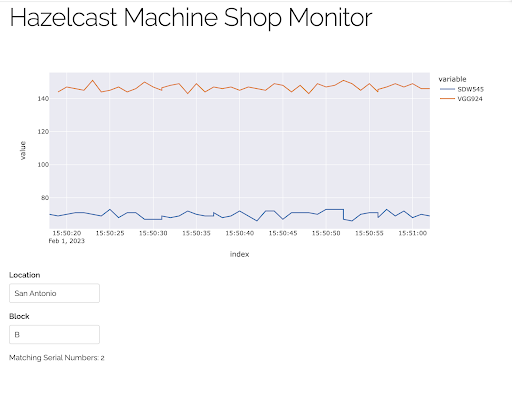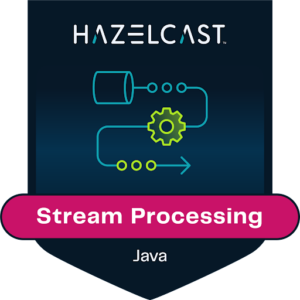New Training Course: Stream Processing with the Hazelcast Pipeline API
If you’re a Java programmer who wants to build applications with streaming data, Hazelcast has a new training course that fills the bill. Stream Processing with the Hazelcast Pipeline API will teach you how to use the Hazelcast Pipeline API to create various applications, from streaming ETL to real-time data analytics to the event-driven applications that businesses need today. The Pipeline API provides simple, fully-literate methods for handling streaming data and combining it with data stored in memory to create applications that generate results in milliseconds.
- In the course, you will complete coding exercises that cover the following topics:
Filters/transformations that eliminate noise from the data stream so you only capture the information you need. For example, if you are streaming system log entries and only need to see data from a specific system, or at a specific logging level, you can use filters to screen out all the other log entries. - Placing streaming data into context by enriching it with in-memory data. An online shopping application can take an incoming query and instantly pull customer data about previous activity to provide special offers, product suggestions, or other just-in-time offers immediately, while the customer is engaged with the application.
- Aggregating streaming data to provide insights into how your data changes over time, to allow you to create applications that respond to those changes as they are detected. A logistics management application can monitor loading dock operations, detect that a particular shipment is taking longer than expected to unload, and deploy additional resources to speed up the loading process.
- Moving your code from a single-node development environment on your system to production. It isn’t enough to say, “well, it worked on my system,” we will take you through the process of deploying your code to a Hazelcast cluster.
At the end of the course, you will take your new knowledge and build an event-driven application for a machine shop. This application takes in sensor data that monitors the temperature of drill bits, enriches the streaming data with stored data about the optimum operating temperature for each type of bit, and adjusts the bit operation speed to keep the temperature within the desired operating range.

Upon completing the course, you’ll receive the Event-Driven Applications – Java badge. This is the first in a new series of credentials from Hazelcast that shows you have the practical skills needed to create the event-driven applications that businesses want.

Share your experience with us in the Hazelcast community Slack and the Hazelcast GitHub repository. Hazelcast also runs a weekly live stream on Twitch, so give us a follow to get notified when we go live. Also, sign up for our community newsletter here.


